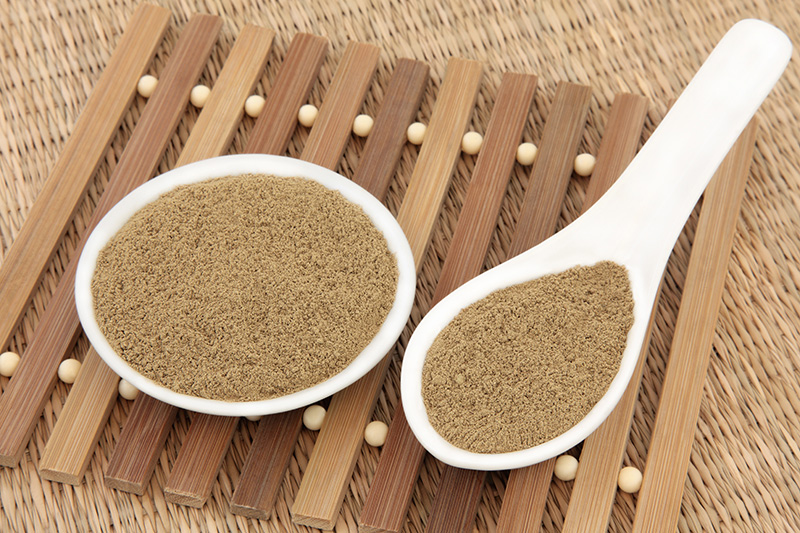Fo-Ti Root Benefits
Fo-Ti root benefits are often celebrated for many purported health benefits due to its high antioxidant and adaptogenic properties. Here are some of its key potential benefits according to Traditional Chinese Medicine.
- Anti-Aging Properties: Fo-Ti is often marketed as a remedy for gray hair and hair loss, with anecdotal evidence supporting its ability to restore natural hair color and promote growth.
- Supports Liver and Kidney Health: Traditional use suggests that it may help detoxify the liver and boost kidney function, key organs in TCM for maintaining vitality.
- Improved Energy and Stamina: Fo-Ti is an adaptogen that may help the body cope with stress and improve physical endurance.
- Cardiovascular Health: Preliminary research indicates that Fo-Ti may help reduce cholesterol levels, supporting heart health.
- Cognitive Benefits: Antioxidants in Fo-Ti support brain health by reducing oxidative stress, potentially aiding memory and focus.
- Immune System Support: Some studies suggest that the herb may bolster immune response by enhancing the production of white blood cells.
While these benefits are promising, it’s important to note that much of the scientific evidence is preliminary, and further research is needed to confirm these claims.
What is Fo-Ti Root?
Fo-Ti root is derived from a climbing perennial plant native to China but also found in Japan, Taiwan, and Vietnam. Its name, He Shou Wu, translates to “the black-haired Mr. He” in Chinese, referencing a legend in which an elderly man regained his youth and vitality, including a full head of black hair, after consuming this root.
The plant belongs to the buckwheat family and thrives in mountainous regions. Its root, which can be processed in various ways, is the most prized part of the plant. The unprocessed form is called “raw Fo-Ti” and is used differently than the processed form, traditionally boiled in black bean soup, to enhance its therapeutic properties.
Historical Uses of Fo-Ti Root
Fo-Ti root boasts a rich history in traditional Chinese medicine (TCM). It has been used for centuries as a tonic to support longevity, vitality, and overall health. Ancient texts describe its use for improving energy levels, nourishing the blood, and supporting kidney and liver functions.
Beyond TCM, Fo-Ti has made its way into the herbal traditions of other cultures. It is similarly regarded as a restorative herb in Japan and Korea, believed to combat aging and boost physical stamina. Traditional applications include promoting hair growth, strengthening bones, and supporting reproductive health.
The root’s reputation as an anti-aging elixir continues to drive its popularity in Eastern and Western herbal medicine.
What Forms Does Fo-Ti Root Come In?
Fo-Ti root is available in various forms, allowing consumers to choose the method that best suits their needs and lifestyle. Common forms include:
- Fo-ti Root Tablets and Capsules: These are convenient for those who prefer a measured dosage without the taste of the herb.
- Fo-ti RootExtracts and Tinctures: Liquid forms of Fo-Ti are often concentrated and can be mixed with water or taken directly for faster absorption.
- Fo-ti RootPowder: Fo-Ti root powder is versatile and can be added to smoothies, teas, or food.
- Fo-ti RootTeas: Traditional herbal teas made with dried Fo-Ti root are a popular way to enjoy its benefits in a soothing beverage.
- Fo-ti Raw Root: The raw or processed root can be purchased and brewed at home for traditional preparation.
Each form has advantages, and the choice largely depends on personal preference and the intended use.
What Should Not Be Taken with Fo-Ti Root?
Fo-Ti root can interact with certain medications and substances, potentially reducing their effectiveness or causing adverse effects. Here are some things to avoid while taking Fo-Ti:
- Laxatives: Since Fo-Ti may have a mild laxative effect, combining it with other laxatives could lead to dehydration or electrolyte imbalance.
- Blood Thinners: Fo-Ti may increase the risk of bleeding when taken with anticoagulants like warfarin.
- Medications for Liver Conditions: Fo-Ti has been associated with liver toxicity in rare cases, so combining it with other substances that affect liver health should be avoided.
- Stimulants: Combining Fo-Ti with caffeine or other stimulants could amplify jitteriness or heart palpitations.
Always consult a healthcare professional before introducing Fo-Ti root into your regimen, especially if you take any medications.
Who Should Not Take Fo-Ti Root?
Fo-Ti root is not suitable for everyone. Certain individuals should exercise caution or avoid it altogether. Fo-ti is possibly unsafe when taken by mouth.
- Pregnant and Nursing Women: The effects of Fo-Ti on pregnancy and breastfeeding are not well-studied, so it’s best to err on the side of caution.
- People with Liver Issues: Although rare, Fo-Ti has been linked to liver toxicity in some individuals. Those with pre-existing liver conditions should avoid it.
- Individuals with Gastrointestinal Sensitivity: The herb’s laxative properties may exacerbate conditions like irritable bowel syndrome (IBS).
- Children: Due to insufficient research on its safety for children, Fo-Ti is generally not recommended for those under 18.
- Those Allergic to Buckwheat Family Plants: As a member of this family, Fo-Ti could trigger allergic reactions in sensitive individuals.
Conclusion
Fo-Ti root stands as a testament to the enduring allure of herbal medicine. With its rich history, diverse forms, and numerous potential benefits, it continues to be a sought-after remedy in the world of natural health. Whether you’re drawn to Fo-Ti root for its anti-aging properties, its role in traditional medicine, or its potential to support overall well-being, this herb offers a fascinating glimpse into the power of nature’s remedies. Always consult a healthcare provider before beginning any new supplement to ensure it’s the right choice.


Use Coupon Code: FREE
*Sorry, coupons can't be combined.